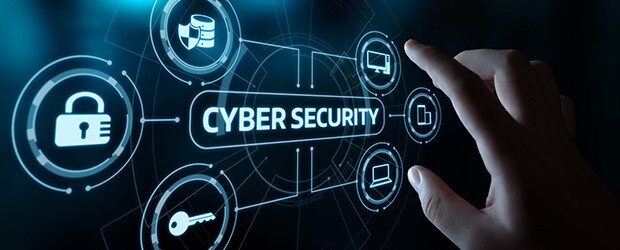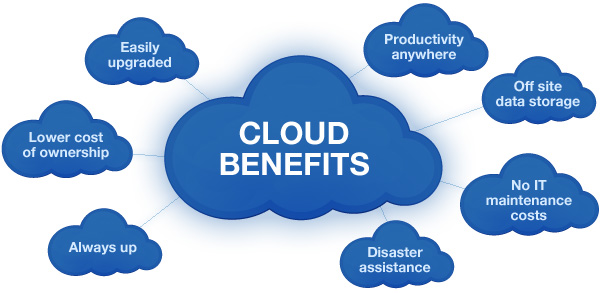Defining the importance of cybersecurity and Stay safe online
There are numerous online resources, courses, and forums that can help you stay up-to-date on importance of cybersecurity trends.

In an increasingly interconnected world, where the boundaries between physical and digital life are becoming blurred, importance of Cybersecurity has emerged as a critical aspect of our daily lives.
The importance of cybersecurity cannot be overstated, as it plays a pivotal role in protecting our personal information, financial assets, and even national security. In this blog post, we will delve into the significance of cybersecurity and provide practical tips on how to stay safe online.
The Digital Age: A Double-Edged Sword
The advent of the digital age has brought about unprecedented opportunities for communication, commerce, and innovation. From online banking and social media to smart homes and IoT devices, technology has permeated every facet of our existence. However, with this digital transformation comes a host of new challenges, one of the most pressing being the vulnerability of our personal and sensitive data.
The Importance of Cybersecurity
Protection of Personal Data: In today's digital landscape, personal information is a highly sought-after commodity. Cybercriminals are constantly on the prowl for personal data that can be used for identity theft, fraud, or other malicious purposes. Cybersecurity measures help safeguard your personal data, such as Social Security numbers, bank account details, and medical records.
Financial Security: The digital world is a playground for cybercriminals looking to siphon funds from your bank account or steal your credit card information. Effective cybersecurity practices are essential to protect your financial assets and prevent unauthorized access to your accounts.
Preservation of Privacy: With the advent of social media and the internet of things (IoT), our lives are more interconnected than ever before. Cybersecurity ensures that your privacy remains intact by protecting against unauthorized surveillance, data breaches, and intrusive tracking.
National Security: Cyberattacks are not limited to individuals and corporations. Nation-states and organizations often become targets of cyber-espionage and cyberterrorism. Strong cybersecurity measures are crucial to safeguarding a country's critical infrastructure, defense systems, and sensitive government information.
Business Continuity: For businesses, cybersecurity is a matter of survival. A data breach or cyberattack can disrupt operations, damage reputation, and result in significant financial losses. Implementing robust cybersecurity measures is essential for ensuring business continuity and protecting customers' trust.
Intellectual Property Protection: In the digital age, intellectual property (IP) is a valuable asset. Cybersecurity helps protect proprietary information, trade secrets, and patents from theft or unauthorized access.
Understand the importance of Cybersecurity How to Stay Safe Online
Now that we understand the importance of cybersecurity, let's explore practical ways to stay safe in the digital realm:
1. Use Strong, Unique Passwords:
- Avoid using easily guessable passwords like "password123." Instead, create complex passwords that include a combination of letters, numbers, and special characters.
- Use a different password for each online account to prevent a breach of one account compromising others.
- Consider using a trusted password manager to generate and store your passwords securely.
2. Enable Multi-Factor Authentication (MFA):
- MFA adds an extra layer of security by requiring you to provide two or more forms of identification before gaining access to an account. This typically involves something you know (password) and something you have (e.g., a mobile app-generated code).
3. Keep Software and Devices Updated:
- Regularly update your operating system, software, and applications. Developers often release updates to patch security vulnerabilities.
- Enable automatic updates whenever possible to ensure you're always running the latest, most secure versions.
4. Be Wary of Phishing Attacks:
- Phishing emails and messages often appear legitimate but aim to trick you into revealing sensitive information. Be cautious when clicking on links or downloading attachments from unknown sources.
- Verify the authenticity of emails by checking the sender's address and avoiding providing personal information via email.
5. Use Secure Networks:
- Avoid using public Wi-Fi networks for sensitive activities like online banking or shopping. If you must use public Wi-Fi, consider using a virtual private network (VPN) for added security.
6. Be Cautious on Social Media:
- Limit the personal information you share on social media platforms. Cybercriminals can use this information for social engineering attacks.
- Adjust your privacy settings to control who can see your posts and information.
7. Regularly Back Up Your Data:
- Backup your important data to an external hard drive or a secure cloud storage service. In case of a cyberattack, you can restore your data without paying a ransom to cybercriminals.
8. Educate Yourself:
- Stay informed about the latest cybersecurity threats and trends. Knowledge is your best defense against cyberattacks.
- Consider taking online courses or attending workshops to enhance your cybersecurity awareness.
9. Use Antivirus Software:
- Install reputable antivirus and anti-malware software on your devices. Keep it updated to protect against viruses, malware, and other threats.
10. Be Skeptical of Unsolicited Calls and Messages:
- Cybercriminals often use phone calls, text messages, or emails to impersonate trusted entities. Verify the authenticity of such communications independently before taking any action.
11. Secure Your IoT Devices:
- Change default passwords on IoT devices and keep their firmware updated to mitigate vulnerabilities.
- Consider setting up a separate network for your IoT devices to isolate them from your main network.
12. Practice Safe Online Shopping:
- Shop only from reputable websites with secure payment options. Look for the padlock symbol in the web address (https://) to ensure a secure connection.
In an age where our digital presence is nearly as important as our physical one, cybersecurity is not merely an option; it's a necessity. The importance of safeguarding our personal information, financial assets, and even national security cannot be overstated.
By implementing the practical tips outlined in this blog post, you can take proactive steps to protect yourself in the digital frontier. Remember, in the world of cybersecurity, prevention is always better than remediation. Stay safe, stay vigilant, and enjoy the boundless opportunities the digital age has to offer.
What's Your Reaction?
















